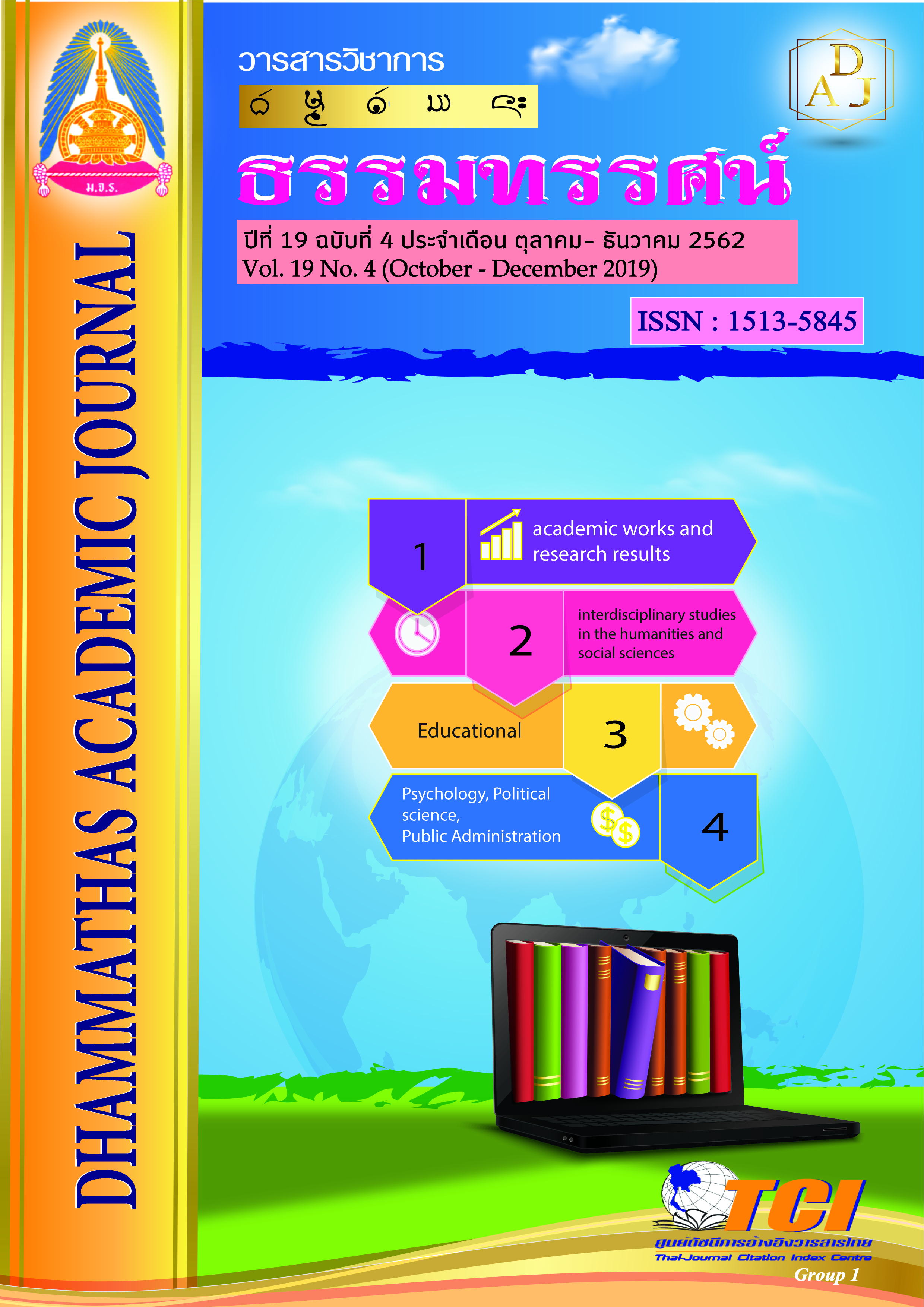Democratic Political Culture of Junior Secondary Students of Strisuksa School Roi Et Province
Main Article Content
Abstract
The objectives of this research were: 1) to study democratic political culture of junior secondary students of Strisuksa school Roi Et province; 2) to compare their democratic political culture, resting upon differences in their genders and educational classes; 3) to study the recommendations to develop a political culture of democracy of them. The sample group comprised of 327 junior secondary students of Strisuksa school formulated through Taro Yamane’s formula. The instrument used for collecting data was Likert-type questionnaires, each of which was endowed with the reliability at 0.94. Statistical tools used for analyzing data encompassed frequency, percentage, arithmetic mean () and standard deviation (S.D.), comparing differences of means by using t-test and F-test (One-way ANOVA). Furthermore, the Scheffe's method of multiple comparison was also applied to the analysis of data.The objectives of this research were: 1) to study democratic political culture of junior secondary students of Strisuksa school Roi Et province; 2) to compare their democratic political culture, resting upon differences in their genders and educational classes; 3) to study the recommendations to develop a political culture of democracy of them. The sample group comprised of 327 junior secondary students of Strisuksa school formulated through Taro Yamane’s formula. The instrument used for collecting data was Likert-type questionnaires, each of which was endowed with the reliability at 0.94. Statistical tools used for analyzing data encompassed frequency, percentage, arithmetic mean (
) and standard deviation (S.D.), comparing differences of means by using t-test and F-test (One-way ANOVA). Furthermore, the Scheffe's method of multiple comparison was also applied to the analysis of data. Research’s results indicated that:
1. Democratic political culture of junior secondary students of Strisuksa school Roi Et province comprehensively rated ‘more’. Individually, four aspects were similarly scored. All aspects ranked in descending orders of means embraced those of: 1) respect the rights and freedoms of others; 2) confidence in democracy; 3) consciousness in the duties of citizens; 4) political participation, respectively.
2. The results of comparison were found that junior secondary school students with different genders and educational classes had indifference of democratic political culture in the overall aspect. When taking a single aspect into consideration, the aspect of confidence in democracy had difference with the statistical significance level at .05.
3. Suggestions from this research in descending order of first three frequencies. Firstly, should consider public benefits more than private benefits. Secondly, law enforcement must have the same standards to punish those offences without discrimination. Finally, should respect speech and reviews of useful citizens.

